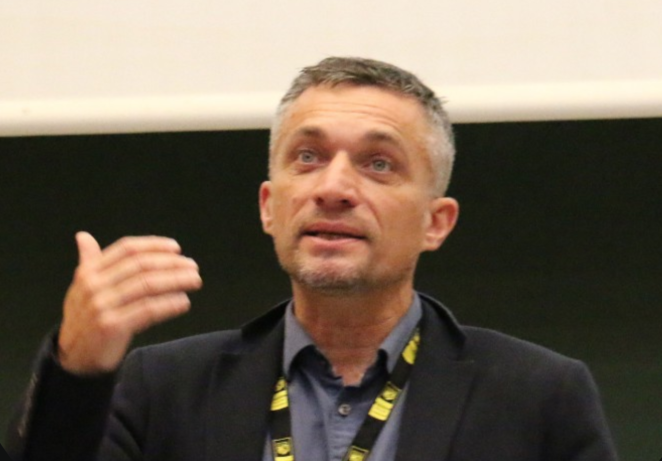
Photo: Sébastien Gallet
Meet Sébastien Gallet, a lecturer at our lead partner the University of Brest, actively engaged in conservation and ecological restoration research. In our interview, Sébastien sheds light on his dual role as a researcher and teacher, and the University of Brest's important role as the lead partner in the DARKER SKY project.
Please introduce yourself: what is your profession? What does your work focus on?
I’m lecturer at the university of Brest, which means that I am both a researcher and a teacher. My research concerns different aspects of conservation and ecological restoration of terrestrial ecosystems. They generally concern interactions between human activities and biodiversity, with an attention to pluridisciplinary and cooperation with local stakeholders.
What is UBO’s role (as lead partner) within the project? What is your personal role within the project?
The role of Lead partner has, according to me, two aspects:
- an administrative role as the intermediate between the consortium of partners and the joint secretariat of the Interreg program. This administrative part is the job of Enora Morin, in collaboration with the external partner (REM) and the administration of the University.
- an animation role. We have to facilitate exchanges between partners and different work packages leaders to ensure that the objectives of the project will be reached. For this aspect, we also have a kind of moral responsibility and, to a certain extent, the role of « guardian of the temple », which means to take care of reminding all partners what are our common goals and commitments, despite our individual constraints.
Why is UBO part of DARKER SKY?
The topic of «Night» started to be integrated in our research team (at Laboratoire Géoarchitecture) some years ago, first through sociological considerations and was open to biodiversity aspects in the context of a university chair called «Noz Breizh» (transl. Brittany's night). Then, we developed a thesis project with one of our former Master students (Master's degree "Biodiversity management and conservation"), Yoann ROULET, who has worked on the subject of «Dark Frame» for several years in a private company. This led us to develop new cooperations with Brest Metropole (with whom we have already cooperated on other subjects).
Then Brest Metropole invited us to join the Darker Sky project, which was for us, first, an opportunity to develop this topic in a European cooperation context, which was also a development objective for our research team. It was also an opportunity to develop cooperation with other researchers and the research team of our university, especially on marine aspects
Why is light pollution an important environmental threat to be addressed? What interesting solutions can DKS provide and how?
Light pollution is an important issue because it affects very large and growing areas. Light is a factor that controls many aspects of the rhythm of species (both animals and plants).Thus, light modification and, in particular, maintaining light at night can directly or indirectly modify the life cycle of species and then the equilibrium of the ecosystem. Ecosystems in urban areas are under many stresses and ALAN (Artificial Light At Night) is one of the main ones. Nevertheless, concrete measured effects of ALAN on the local population are not so numerous and studies are needed.
DARKER SKY will contribute to this necessary knowledge. It has the specificity of combining the observation of ALAN effects and the evaluation of the possibility to mitigate these effects by modifying the lighting at a real-scale. It will also propose a standardised protocol for the various measures required (light, biodiversity, social representation), which could be reused on a larger scale.

